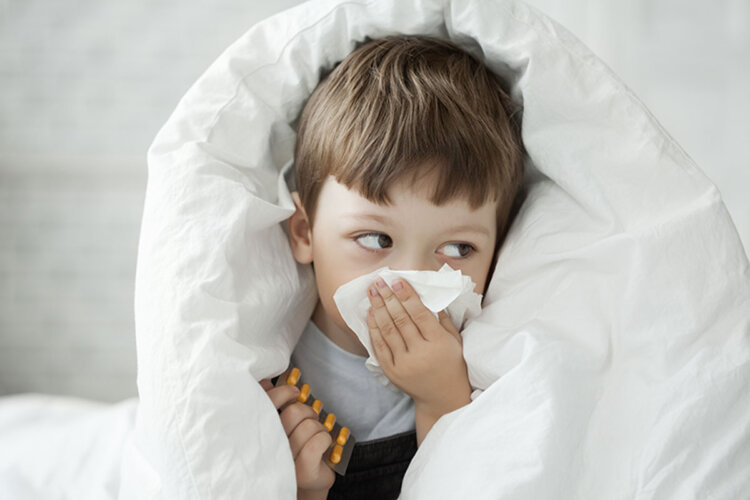Winter brings with it cold temperatures and a number of health issues, particularly for children. One typical question that parents struggle with is: Why are children more prone to illness in the winter? Lack of immunity, too much exposure to cold weather, breathing problems, and poor ventilation are some of the variables that can affect a child’s capacity to ward off infections. Early symptom detection and timely medical intervention, however, can lessen the effects. We will discuss the five main winter illnesses that might harm children’s health in this article.
5 MAJOR WINTER DISEASES THAT MAY AFFECT CHILDREN
- Influenza: The flu characterised by fever, cold, cough, sore throat and body aches tends to be more prevalent during winter. Children, especially those with weaker immune systems, are more prone to this infection.
- Common Cold: The common cold is a common problem that occurs to almost everyone during the winter. It may also lead to a viral fever. A kid may suffer from viral fever for a period of 1 week to 2 weeks. During this time, the child should be kept in intense comfort and care as this kind of illness can lead to extreme weakness.
- Stomach Flu: It is mainly a viral intestinal infection and is caused by norovirus. It can last from 2 days to even a week. Common symptoms that may detect the illness in kids are water diarrhoea, vomiting, mild fever, fatigue and headache
- Cold-Weather Skin Conditions: Dry air and cold temperatures can bring their own set of skin problems for kids such as eczema, flare-ups and chapped lips. Regular moisturisation and keeping the skin covered reduce the risks.
- Respiratory Syncytial Virus: This is a common problem of a respiratory infection that happens in kids who are less than 2 years of age. A runny nose, fever, congestion, rapid breathing and cough are symptoms of this illness. The symptoms may stay for as much as 3 weeks before getting cured.
Despite the difficulties that come with winter, parents can take preventative measures to protect their children’s health. Major winter illnesses can be avoided by promoting excellent hygiene habits, making sure one is eating enough, keeping one’s indoor environment balanced, and receiving vaccinations on time.
Source:In







 Finance
Finance







